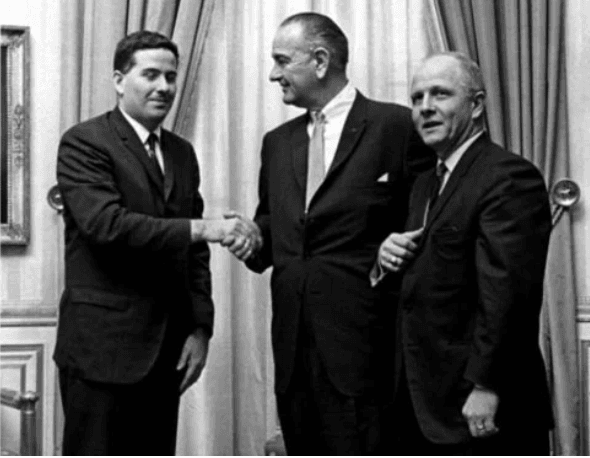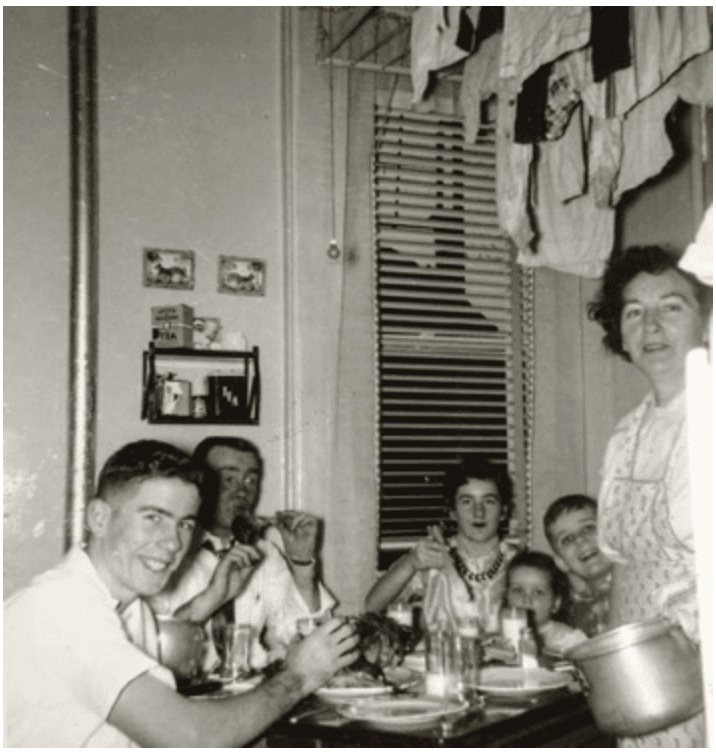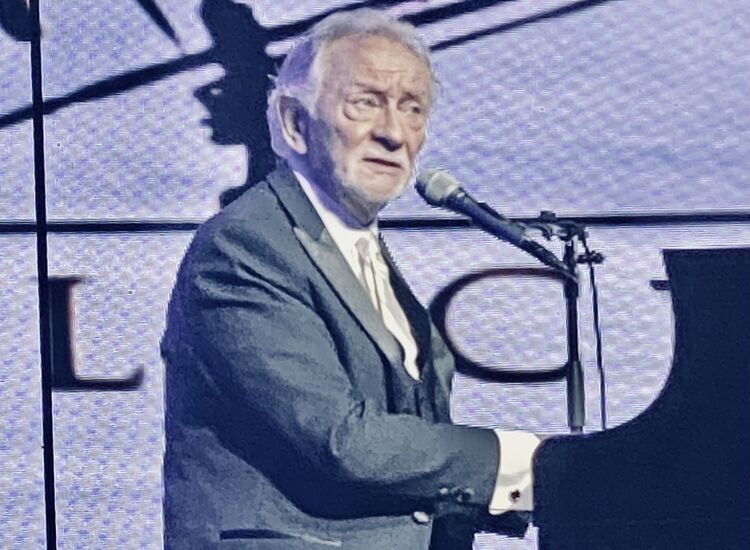If you were to choose one person who personified the success of first-generation Irish Americans, you would be hard pressed to find a candidate more worthy than John Feerick, the retired Dean of Fordham University’s Law School. Within seven years of graduation from Fordham Law School, Feerick had become a partner in a small law firm that thanks in part to his work would grow to become one of the city’s most prestigious firms.
A paper that Feerick wrote while still in Fordham Law School about presidential succession became so influential that he was asked to take part in the drafting of the Twenty-Fifth Amendment to the United States Constitution. Fourteen years later, John sacrificed a highly lucrative position as a partner in a Manhattan law firm to become the dean of Fordham Law School because as Feerick said, “There was something strong within me saying it was time to give back to the world.” John Sexton, retired dean of NYU Law School and former NYU President, jokingly refers to Feerick, a deeply religious and charitable man, as “Saint John.”
Feerick is an exceedingly modest about his own accomplishments, but heaps praise on his immigrant parents, who came from the Mayo countryside.
John Feerick was born in 1936 in the Bronx. His parents and their five children were all crammed into a small apartment in the Bronx. His father, who had little formal schooling, worked many jobs including tunneling, building barracks for the U.S military during World War II and finally as a bus driver and dispatcher for the MTA. He was one of many Irish-born members of the Transport Workers Union, formed by Irish immigrant Michael Quill. His mother stayed at home devoting herself to raising her children. Though others might have considered the family poor, Dean Feerick said that they were not conscious of being poor because the family had enough food on the table, love, discipline and faith.
Feerick went to the local parochial school and then to Bishop Dubois High School. He grew up not far from Yankee Stadium and played in Jerome Park, now the site of the present-day Yankee Stadium. Naturally, he became a Yankee fan and idolized the Yankee greats he saw including Joe DiMaggio, Roger Maris and Yogi Berra.
He attended Fordham as an undergraduate from 1954 to 1958 where he excelled as a student. Fordham Law School accepted him, despite poor scores on the Law School Aptitude Test, which would prove to be a very wise decision in hindsight. He proved to be a first-rate law student. He was chosen editor of the Fordham Law School Review. A controversial student election where the winner resigned and there was no obvious successor piqued his interest in presidential succession races, so he began to study the law surrounding presidential succession.
Only a week before the Kennedy assassination in November 1963, Feerick penned an essay on presidential succession. When Kennedy died, people realized that there was no constitutional provision for a new Vice President, Feerick’s article became the subject of intense interest in Washington. He quickly became a rising legal star.

Shaking hands with LBJ.
Feerick would serve 20 years as dean of the law school, longer than any other dean has ever served. He made many positive transformations while dean of the Law School. He also proved to be a brilliant fundraiser and reduced the student-to faculty ratio, while diversifying both the student body and the Law School staff. In 2014, his fundraising resulted in the completion of a new Law School building. He showed his commitment to public service by opening new institutes within the Law School including the Stein Institute of Law and Ethics, the Public Interest Resource Center, and the Joseph R. Crowley Program in International Human Rights. During his tenure as dean, Feerick instituted a summer program in which Fordham students collaborated with students from Trinity College Dublin and Queens University Belfast. He was invited by President Bill Clinton to accompany him on his 1995 visit to Northern Ireland.
Feerick’s influence extends beyond Fordham Law School. He has been called upon to mediate many disputes and has served as chair of the board of the American Arbitration Association as well as president of the New York City Bar Association and the Citizens Union Foundation. He helped the National Football League develop its salary cap and has worked with the National Basketball Association to mediate with its players union.
Three times, beginning in 1987, governors of New York State have asked John to head state commissions on government integrity and ethical standards. The first commission, the Commission on Government Integrity in 1987 (often called the Feerick Commission) developed an ethics reform agenda for the state.

Dean Feerick with President Clinton.
Twenty years later a subsequent governor asked John to chair the newly created State Commission on Public Integrity. The governor said of Feerick, “He is pre-eminent among all New Yorkers in standing for principles of integrity in government.” The New York Times praised the governor’s selection of Feerick citing his “sterling reputation” for integrity.
Feerick has been married for 58 years to his wife Emalie and they have six children. An extremely generous man, Feerick has contributed heavily to St. Angela Merici parochial school in the South Bronx where he once went to school.
In 2020, Fordham University Press published his memoir entitled “That Further Shore: A Memoir of Irish Roots and American Promise” about his Irish roots and Bronx boyhood. Today he still serves as Director of the Feerick Center for Social Justice and Dispute Resolution at Fordham Law School. Feerick was honored in 2022 at the Spirit of Kylemore for his generous donations to the Benedictine Abbey in Connemara, Co. Galway.









